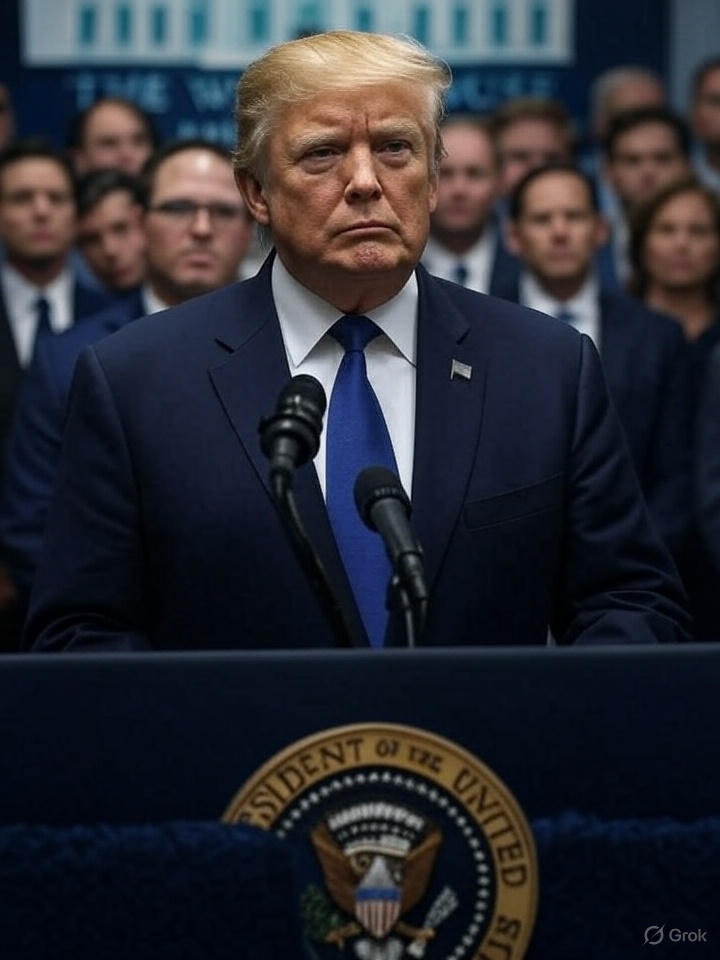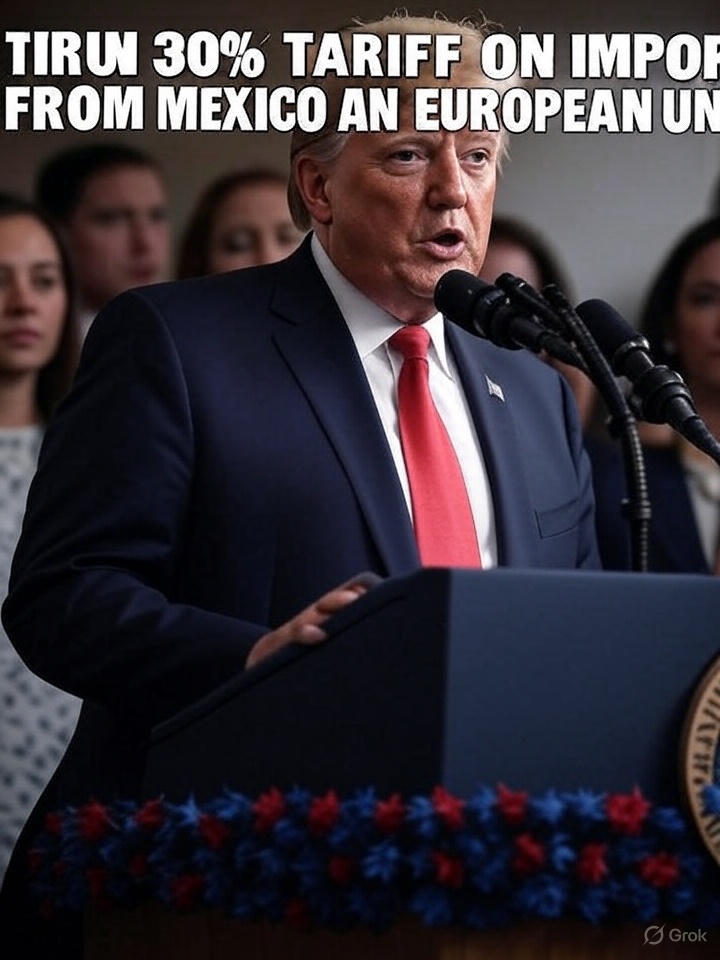On Sunday
, former U.S. President Donald Trump announced a sweeping new 30% tariff on imports from Mexico and the European Union, set to take effect on August 1. The unexpected move sent shockwaves through global markets, causing Dow futures to fall sharply in pre-market trading. This marks a significant escalation in trade tensions, following a series of earlier tariffs imposed on countries including Brazil, Argentina, and South Korea. The decision is already drawing international criticism and raising fears of a wider global trade war.
Trump defended the decision in a social media post, stating that the United States “can no longer allow unfair trade practices to continue” and asserting that the tariffs are necessary to protect American manufacturing and agriculture. He accused both Mexico and the EU of maintaining persistent trade surpluses with the U.S. through what he called “unfair subsidies and market manipulation.” He also claimed the tariffs will incentivize companies to relocate their production to the United States, boosting domestic job creation.
However, economists and industry leaders warn that the 30% tariffs could have broad negative effects on the U.S. and global economies. The new tariffs target a wide range of goods, including automobiles, agricultural products, machinery, and consumer electronics—industries deeply integrated with global supply chains. Higher costs for imported goods are expected to lead to increased prices for American consumers and disrupted operations for businesses that rely on overseas parts and products.
| Detail | Information |
|---|---|
| Tariff rate | 30 % on imports from the EU and Mexico |
| Effective date | August 1, 2025 |
| Market reaction | Dow futures fell ~200–300 points |
| Other affected nations | Letters sent to Canada, Brazil, Japan (tariffs up to 50%) |
| Reactions | EU and Mexico condemned it, EU considering countermeasures |
The announcement comes amid broader campaign rhetoric by Trump, who has made economic nationalism and tough trade policies a cornerstone of his 2024 presidential campaign. He has consistently criticized existing trade agreements, vowing to renegotiate or withdraw from deals he deems unfavorable to the United States.
The European Union responded quickly, calling the tariffs “unjustified and counterproductive.” A spokesperson for the European Commission stated that the EU is prepared to retaliate with its own tariffs targeting key U.S. exports, including motorcycles, whiskey, and agricultural goods. Mexico’s Ministry of Economy also condemned the move, calling it a violation of trade agreements such as the USMCA (United States-Mexico-Canada Agreement), and signaled that it would challenge the tariffs through legal mechanisms.
Financial markets reacted negatively to the news. Dow futures dropped over 300 points within hours of the announcement, while global markets also showed signs of instability. Investors fear a repeat of the 2018-2019 trade war with China, which disrupted global trade, lowered investor confidence, and contributed to economic uncertainty.

U.S. industries, including auto manufacturers, farmers, and retailers, have voiced concerns over the potential fallout. Many fear that retaliatory tariffs from other nations could further damage exports and undercut fragile supply chains. Business groups, including the U.S. Chamber of Commerce, have urged the administration to reconsider or narrow the scope of the tariffs, warning of long-term consequences for American competitiveness.
In conclusion, Trump’s latest tariff decision marks a significant intensification of his confrontational trade policy. While aimed at protecting U.S. industries, the move risks triggering retaliatory actions, higher consumer prices, and further volatility in global markets. As the August 1 implementation date approaches, businesses and governments around the world are bracing for another wave of economic uncertainty.

